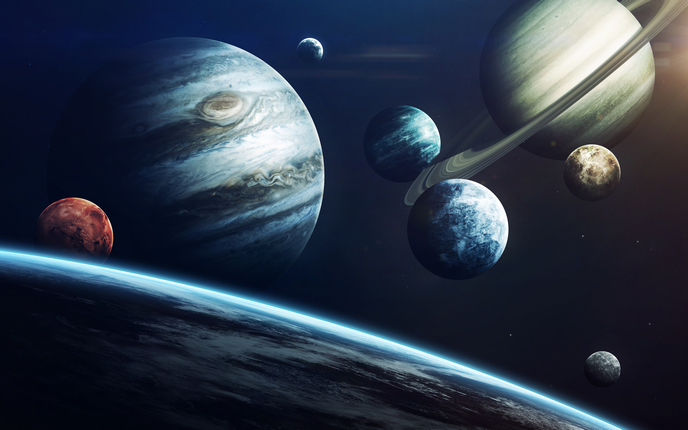Students get a glimpse of the professional world of planetary science
Europe’s largest planetary science meeting, the Europlanet Science Congress (EPSC), covers a wide range of science topics related to the study of planets and other celestial bodies that orbit stars. Held every year since 2006, the EPSC is the main platform through which Europe’s planetary science community comes together to share new knowledge and advances in the field. Besides stimulating talks, workshops and poster sessions, the EPSC also provides participants with networking opportunities and the chance to exchange experiences. This year, as part of its networking activities aimed at attracting more users and new partners from across the globe, EPSC2020 has also opened its virtual doors to schools and students. For the first time ever, with the support of the EU-funded EPN-2024-RI and Scientix 4 projects, students are being given a glimpse into the world of modern planetary science. As stated on the EPN-2024-RI project website(opens in new window), from 21 September to 9 October 2020, “presenters from all over the world will make their work available to schools to follow online. For 3 weeks, a list of topics on high level planetary science, ranging from the Moon to the exoplanets and laboratory experiments will be given.”
What are the events?
The events are being held in English, with a possible follow-up in the speaker’s native language if it isn’t English. Schools will have access to on-demand videos of scientific talks, with plain-language summaries to aid understanding. In addition, a question and answer session hosted by an expert will be broadcast live every week, giving students the opportunity to ask questions. Workshops on introductory topics will be carried out by both experienced and young researchers. Workshop topics will include calculating Earth’s age, chasing meteorites in Antarctica, the solar system and astrobiology. Another activity organised for schools and teachers in the course of EPSC2020 is an art contest called #InspiredByOtherWorlds. “Art is meant to inspire. Art is meant to be shared. Art allows us to go beyond our limits. Planetary science takes us beyond the limits of our world. What happens when a passion for art and a passion for exploring planets and other worlds meet?” the project website’s art contest page(opens in new window) asks prospective participants. Space enthusiasts of all ages are invited to submit their drawings, stories, paintings, videos, models, craftwork or art installations that have been inspired by other worlds. Entries will be shown in a virtual exhibition during EPSC2020, which, in light of the COVID-19 pandemic, is breaking with tradition and being held as a virtual meeting for the first time. The congress furthers the aim of EPN-2024-RI (Europlanet 2024 Research Infrastructure) to strengthen Europe’s position as a forerunner in space exploration. It also advances the objectives of the Scientix 4 (Scientix 4) project to promote inquiry-based science education and highlight the importance of integrating the arts into science, technology, engineering and maths education. For more information, please see: EPN-2024-RI project website(opens in new window) Scientix 4 project website(opens in new window)



